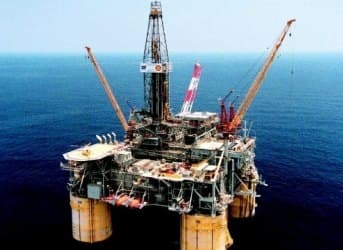First, the good news.
Later this month, on at a 21 October auction, Brazil will sell off leases in its massive Libra southern Atlantic offshore oil field, with high expectations that the sale will inject substantial foreign investment into its economy, bedraggled since 2008 by the global recession.
The Libra prospect is estimated to hold 8-12 billion barrels of recoverable crude oil, which, if seismic studies confirm, make it the largest deepwater oil field ever discovered in an energy hungry world frantically searching for Middle East replacements. Brazil’s government’s Agência Nacional do Petróleo oil regulator has estimated that as much as $200 billion will have to be invested to develop Libra over the contract’s 35-year period, which leaves even Petropreas tapped out.
As of January 2013, Brazil had 13 billion barrels of proven oil reserves, the second-largest in South America after Venezuela. The offshore southern Atlantic Campos and Santos Basins, hold the majority of Brazil's proven reserves. Last year, Brazil produced 2.7 million barrels per day of liquid fuels, of which 78% was crude oil, putting it ahead of OPEC major Iraq, still struggling to revive its oil industry after the 2003 U.S. led invasion, which toppled the regime President Saddam Hussein.
The bad news?
Related article: Brazil Pre-Salt Reflects Changing Face of Energy Investment
Few takers.
As yet.
Some of the major global producers have taken a pass on this option. Oil majors, including ExxonMobil, BP and Chevron have not submitted bids, amid concerns over Brazil’s state-dominated strategy for developing the Libra offshore field. The company that wins the Libra auction will pay a bonus to the Union of R $ 15 billion. The final signing of the production sharing agreement, which approximately 1,500 square kilometre, s is scheduled for November. The tender winner is expected to develop exploration activities for four years, a period that can be extended so that it is inserted in the production sharing contract.
So, why the foreign reluctance?
Apparently because the Brazilian government is asserting that it will play a major role in developing the country’s offshore hydrocarbon assets, rather than letting in multinationals solely on their terms. In a first for developing world economies, Chinese state-controlled oil companies will be limited to joint bids to develop Libra, Brazil's largest offshore oil discovery, amid concerns the firms could share data and reduce competition.
The long term stakes are high, given the potential worth of the assets. The authoritative U.S. government’s Energy Information Administration notes in its country brief that Brazil is a rising 21st century energy player is not in doubt. “Brazil is the 8th largest total energy consumer and 10th largest producer in the world. Brazil was the largest producer of liquid fuels in South America in 2012. More than 90% of Brazil's oil production is offshore in very deep water and consists of mostly heavy grades. The United States imported 187,000 bbl/d of Brazilian crude oil in 2012 and has been Brazil's largest crude oil export destination for the past decade… The world's largest oil discoveries in recent years have come from Brazil's offshore, pre-salt basins… In contrast to the earlier concession-based framework, Petrobras will be the sole operator of each production sharing agreement and will hold a minimum 30% stake in all pre-salt projects.”
The money quote of the EIA survey is the last sentence, defining the role of Petrobras.
Related article: Where's the Next Play for the Giants of Oil?
ADVERTISEMENT
Complicating the auction picture are recent revelations by whistleblower Edward Snowden that America’s National Security Agency has used its global espionage program to spy on Petrobras negotiations. Despite this, Petrobras president Graça Foster told reporters, "From what I see, the information I have, really, what is on the table, there is no possibility of changing the date of the auction because of this information, which is not material, not identified."
We’ll leave the final word to the EIA, which notes, “The potential impact of the discoveries upon world oil markets is vast. However, considerable challenges still must be overcome to produce these reserves. Considering both the large depths and pressures involved with pre-salt oil production, there are significant technical hurdles that must be overcome. Further, the scale of the proposed expansion in production will also stretch Petrobras' exploration and production resources and Brazil's infrastructure, as will strict local content requirements.”
What is clear is that Petrobras and Brasilia want joint ventures, but the stringent terms are currently anathema to global oil majors, used to exploiting the developing world on their own terms. Still, 8-12 billion barrels at $100 per barrel represent a potential $800-1.2 trillion of revenue, and it might be time for international oil companies to begin considering working on the new 21st century energy playing field. For Brasilia, the fallback position is China, which still seems eager, even despite the restrictions. Accordingly, Brazilian offshore oil reserves are there for western oil companies to lose.
By. John C.K. Daly of Oilprice.com


















